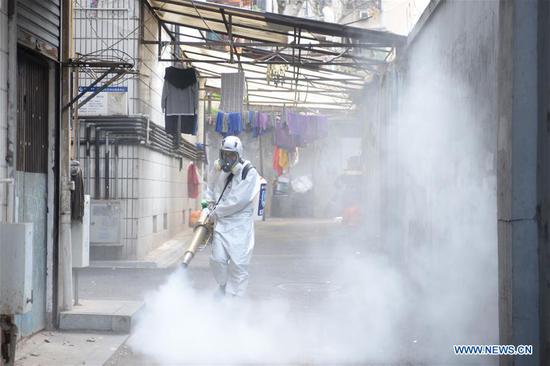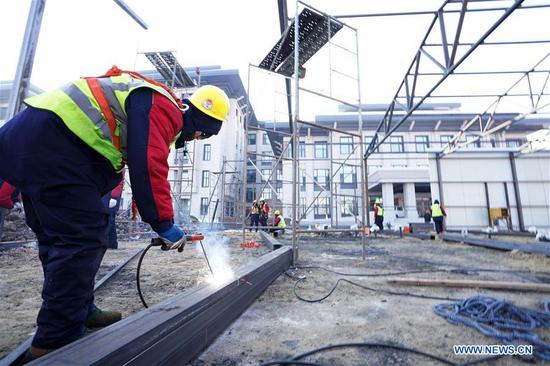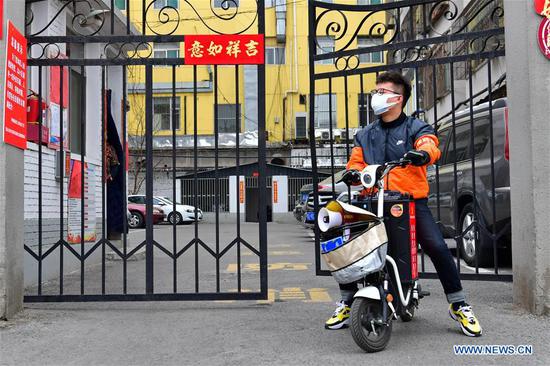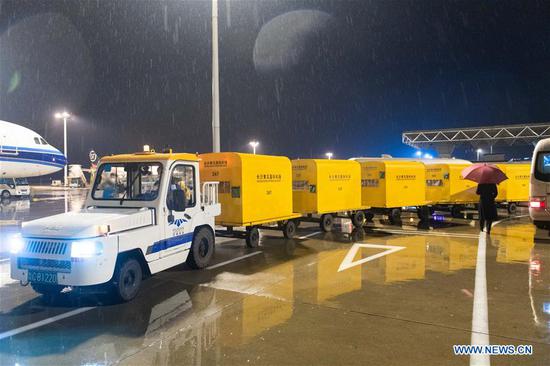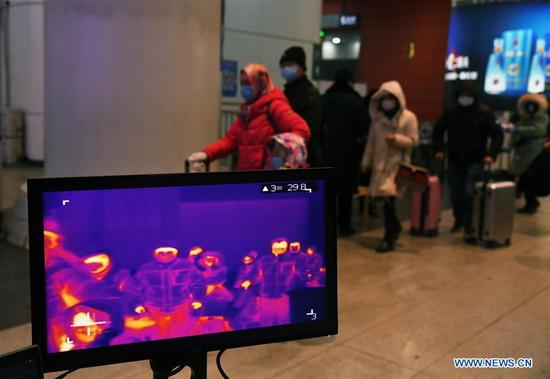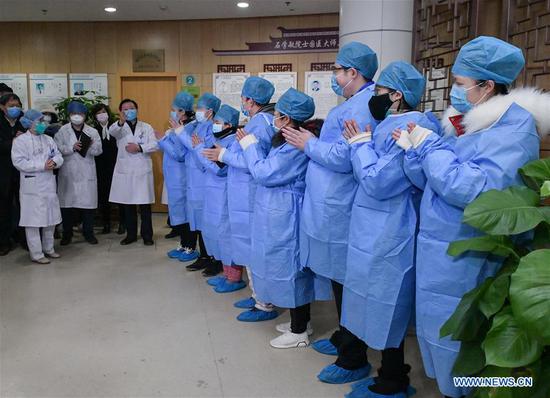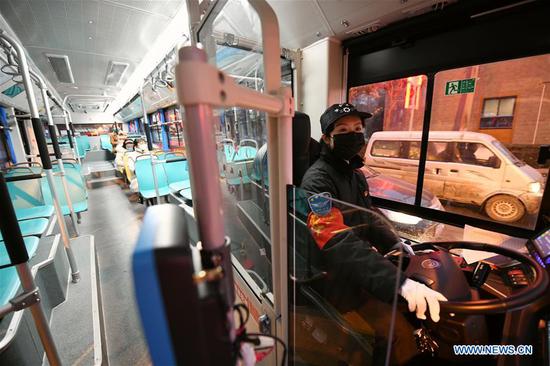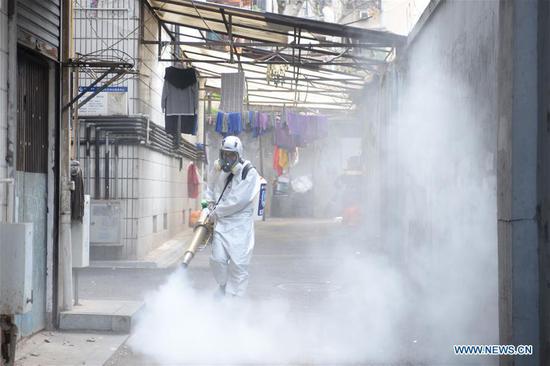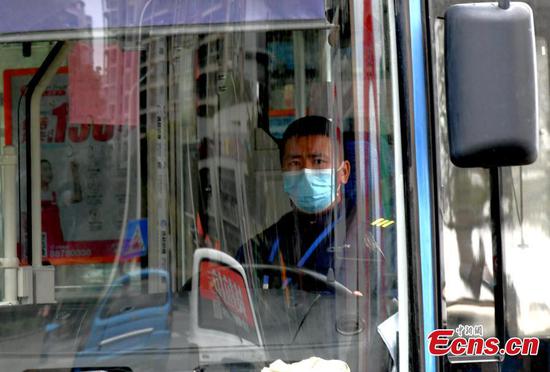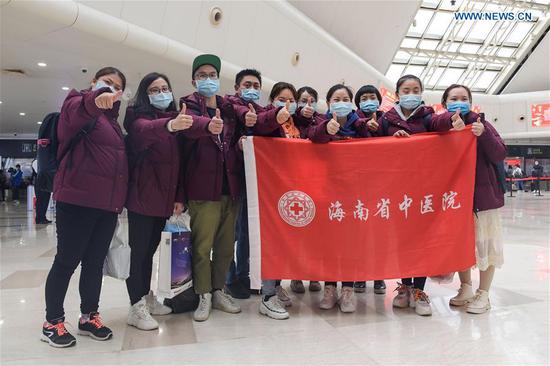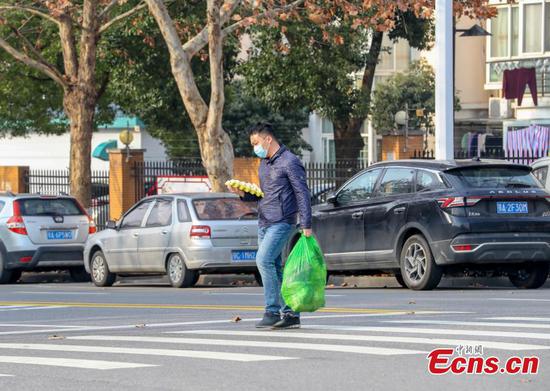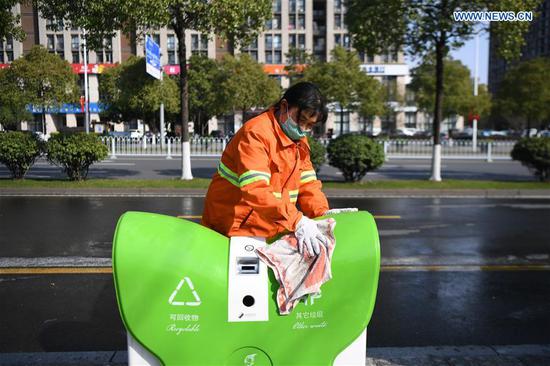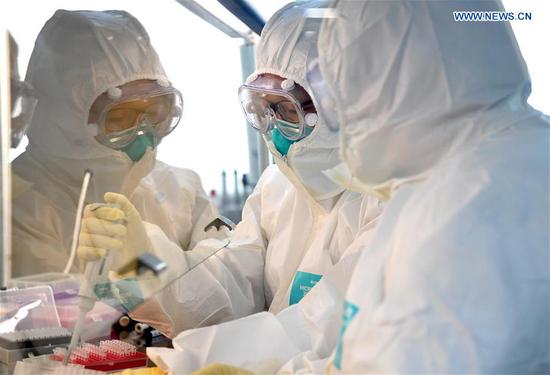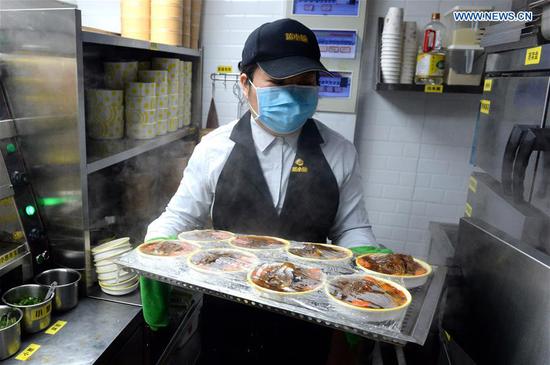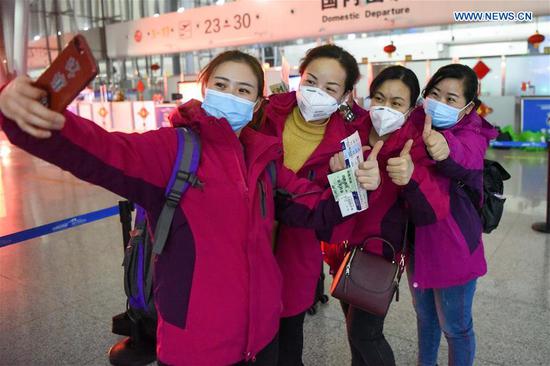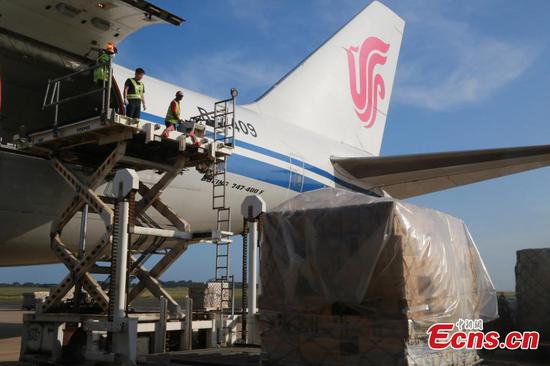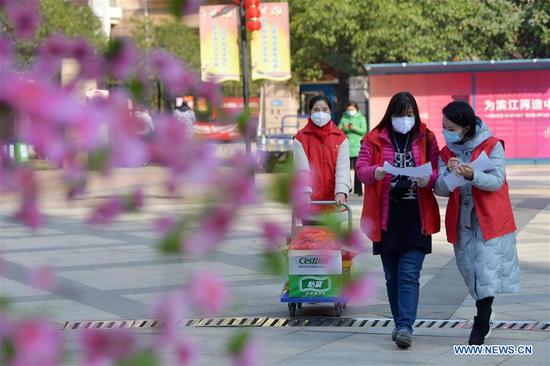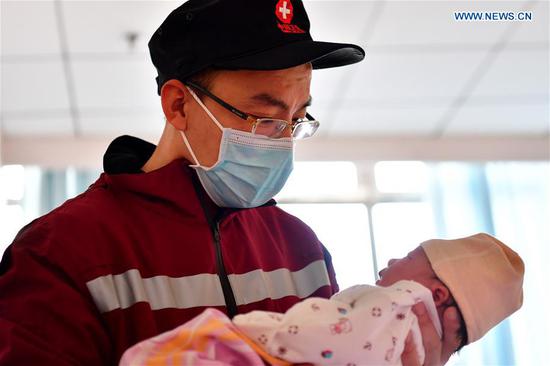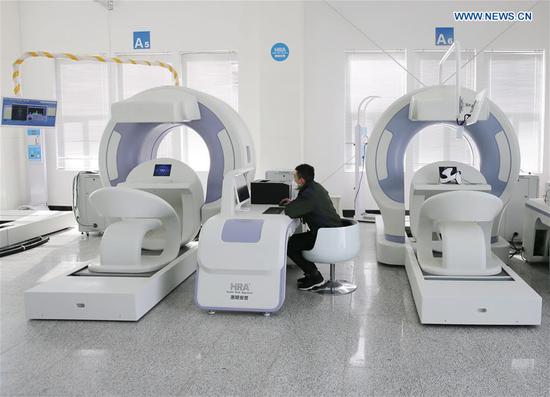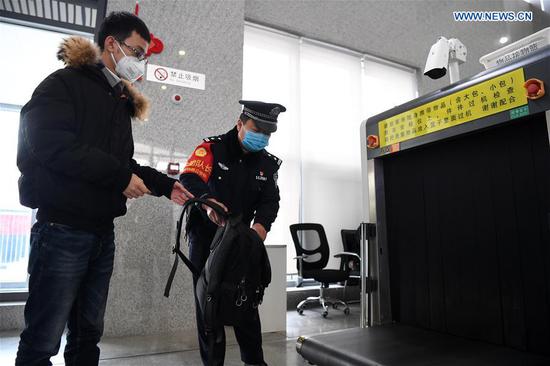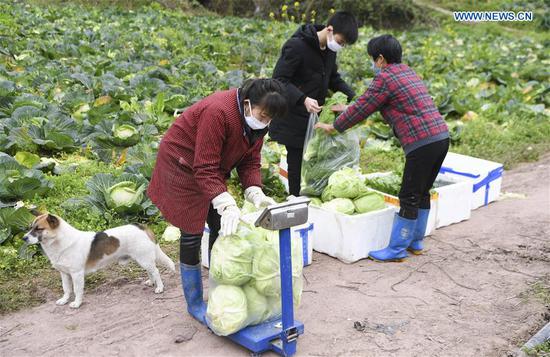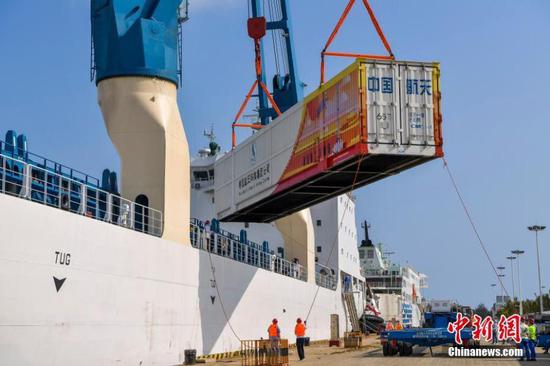China has unveiled a raft of tax policies and financial support to reduce financial burdens on some sectors and support the country's fight against the novel coronavirus epidemic.
As of February 6, a total of 66.74 billion yuan (9.56 billion U.S. dollars) in funds for epidemic prevention and control were arranged by different levels of finance institutions, with actual expenditure of 28.48 billion yuan (four billion U.S. dollars), China's Vice Finance Minister Yu Weiping said at a press conference on Friday.
Among the expenditure, the central government allocated a total of 17.09 billion yuan (2.45 billion U.S. dollars), includes 5.7 billion yuan in special subsidies for epidemic prevention and control, 1.8 billion yuan in subsidies to Hubei Province, the epidemic center.
Tax relief policies for industrial sectors, patients
Fiscal and taxation financial policies to support affected companies include increased support for financial loan discounting, and change to 50 percent of company's actual loan interest rate to ensure that actual financing cost is below 1.6 percent, said Yu.
For firms in the transportation, catering, accommodation and tourism sectors, their losses logged in 2020 can be carried over to an extended maximum period of eight years, the country's finance ministry and taxation watchdog said on Friday.
Funds for basic public health services and grassroots epidemic prevention and control were allocated 9.95 billion yuan, Yu added.
People working in the transportation, life service and daily necessities delivery service sectors will be exempted from the value-added tax.
The government will also implement specified preferential tax policies regarding donations and subsidies for people participating in the epidemic control.
Airlines' payment to the government's civil aviation development fund is also waived, according to the new policy. The move aim to alleviate the losses the aviation industry has suffered due to the outbreak.
The specific tax policies have a retroactive effect, so they came into effect on January 1, 2020. The expiration date will be decided later based on the epidemic situation, according to the statement.
The central financial ministry will cover 60 percent of diagnosed patient treatment costs, and provide subsidies as appropriate for suspected patients of the novel virus. For people diagnosed with the novel virus, their personal business guarantee loan can be extended for one year and continue to enjoy fiscal discount policy.
Central bank keep working on maintaining financial stability
China's financial planners have made great efforts since the outbreak to make sure the country's financial system function stably, said Pan Gongsheng, deputy governor of the People's Bank of China (PBOC) and administrator of the State Administration of Foreign Exchange (SAFE), China's foreign exchange watchdog.
The efforts included ensuring sufficient liquidity in the financial system, resuming financial trading markets on expected time, offering financial supports to guarantee people's livelihood and maintain stable development of the real economy.
On February 3 and 4, the PBOC launched an open market operation beyond expectations, and cumulatively invested 1.7 trillion yuan in liquidity in two days to maintain a reasonable and sufficient liquidity of the banking system to support epidemic prevention and control and stabilize market expectations.
The PBOC Beijing operation said on February 6 that it will ensure re-discounted loans issued in the first quarter of 2020 will be at least 10 billion yuan, as part of efforts to shore up firms hit by the coronavirus. Full-year re-discounted loans will be no less than 30 billion yuan, and of those loans, 80 percent will be issued to smaller firms, the bank said.
Earlier on February 3, the central bank injected 1.2 trillion yuan into the system via reverse repos, then pumped 400 billion yuan into the banking system on February 4, aiming to provide reasonable and sufficient liquidity in the banking system during the special time to prevent and control the coronavirus outbreak.












